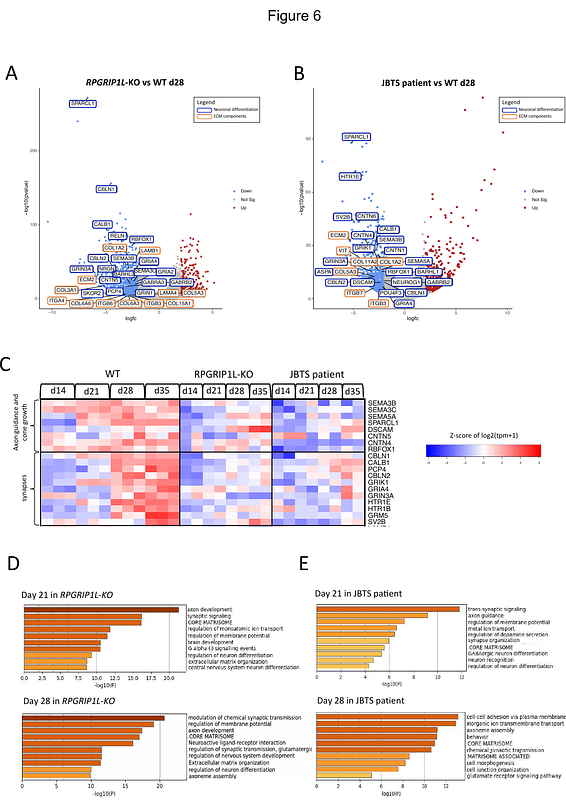FGF overactivation underlies reduced neurogenesis in cerebellar organoid models of neurodevelopmental ciliopathy

FGF overactivation underlies reduced neurogenesis in cerebellar organoid models of neurodevelopmental ciliopathy
Brunetti, L.; Wiegering, A.; Anselme, I.; Pollara, L.; Catala, M.; Antoniewski, C.; Valente, E. M.; Schneider-Maunoury, S.; Vesque, C.
AbstractA hallmark feature of neurodevelopmental ciliopathies is the hypo-dysplasia of the cerebellar vermis, as observed among most Joubert Syndrome patients. Despite significant advances in mouse models, the pathogenetic mechanisms linking ciliary gene dysfunction to Joubert syndrome neurodevelopmental defects are still poorly understood. In this study, we generated cerebellar organoids from human induced pluripotent stem cells carrying null mutations or patient-derived variants in the Joubert syndrome causal gene RPGRIP1L, which encodes a scaffold protein crucial for cilia function. Using immunolabelling and transcriptomics, we show that WT organoids recapitulate early steps of cerebellar development, including the expression of markers for both Granule and Purkinje cell lineages. In contrast, cerebellar organoids derived from all RPGRIP1L-deficient lines exhibit a common severe reduction of Purkinje lineage markers, along with decreased neurogenesis. The neurogenesis defect is coupled to increased progenitor proliferation, as well as extended overactivation of the FGF pathway. Restoring normal levels of FGF signaling in RPGRIP1L-deficient organoids rescues the proliferative/neurogenic balance as well as Purkinje lineage formation. Thus, our results uncover an early FGF deregulation that hampers correct neuronal differentiation and could participate in the cerebellar phenotype of patients suffering from neurodevelopmental ciliopathies.